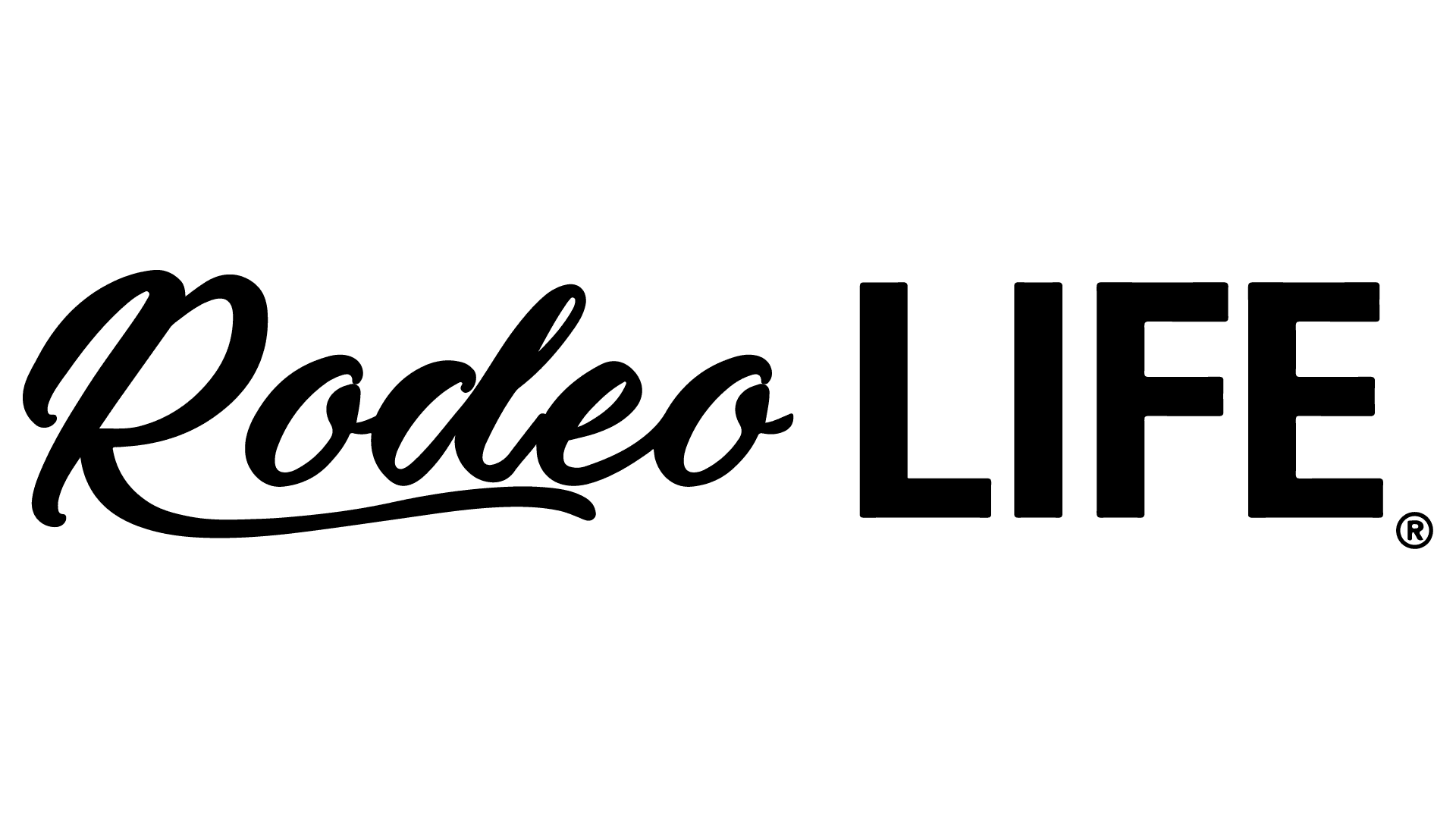story by PRCA & Siri Stevens PHOTOS COURTESY OF PRCA, Jackie Jensen & Rodeo News
CODY OHL
Tie-Down Roper
Inducted 2020
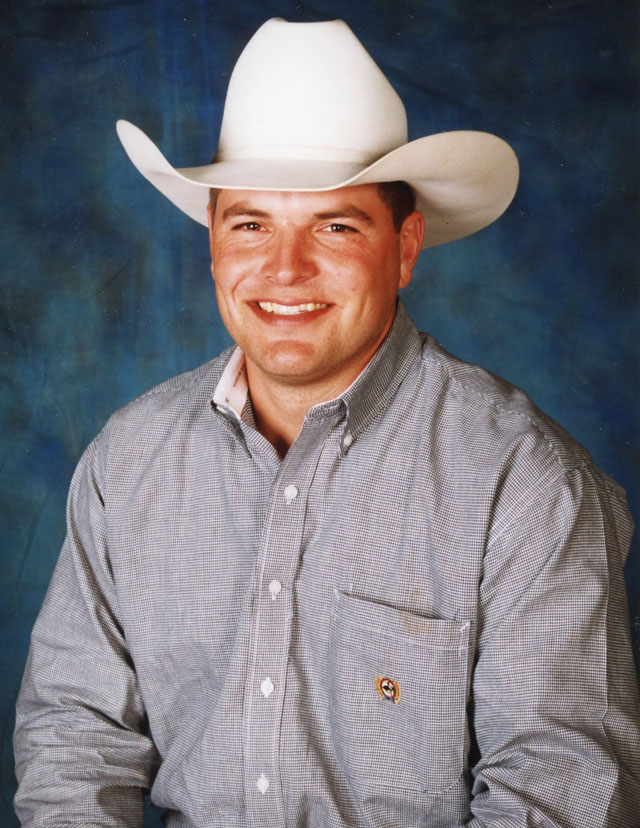
Cody Ohl blazed into the ProRodeo ranks in 1994 by winning Rookie of the Year and his first trip to the National Finals Rodeo. The young Texas roper had been planning his career since he was 15 and winning National High School Rodeo awards.
It would take Ohl a few years to win his first gold buckle. He edged out Fred Whitfield to capture the 1997 Tie-Down World Title by $5,031. To prove that first win was no fluke, Ohl roared through 1998 and captured a second title.
Ohl had another record-setting year in 2001 as he added steer roping and team roping to his agenda in order to compete for the All-Around title. In the ninth round of the Finals, Ohl missed his calf on the first loop. A second loop caught the calf by the hind legs. As Ohl dismounted, he twisted his knee, tearing two major ligaments. He managed to crawl to the calf, cut the rope, stand and flank the calf, and finish the tie with a time of 40.3 seconds. Ohl had to be carried from the arena by the Justin Sports Medicine Team. However, he had amassed enough money earlier in the week to secure both the tie-down title and the All-Around title. He accepted both buckles from crutches on the 10th night.
Not one to stay inactive, Ohl battled through rehab and was back on the rodeo trail late in 2002. He continued to win and qualify for National Finals Rodeos, capturing his fifth and sixth tie-down roping titles in 2003 and 2006. He only missed one Finals appearance between 1994 and 2014. He entered an elite group when he passed the $3 million earnings mark in 2012.
World Championships: 6 (tie-down 1997-98, 2001, 2003, 2006; all-around 2001)
Born September 21, 1973 in Rosenburg, Texas.
From the Induction:
Due to a staph infection in his leg, he was represented by Kendra Santos. Cody roped at 20 National Finals Rodeos, earning 2 of his six buckles after obliterating his knee in the ninth round of the 2001 NFR. It took the better part of the year to recover from that and he came back and won two more titles. In his 20 plus years, his earnings of $3.5 million, second only to Trevor Brazile, makes him the highest money maker in calf roping history. He has taken home 55 National Finals go round buckles.
SUNNI
DEB BACKSTROM
Contract Personnel
Inducted 2020
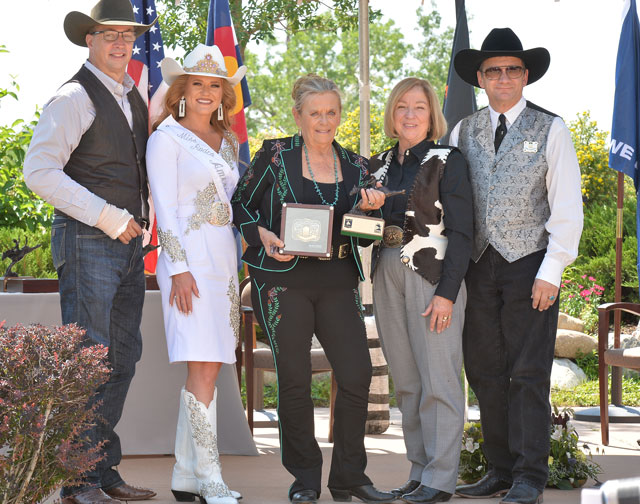
Sunni Deb Backstrom grew up with a stopwatch in her hand. No doubt encouraged by her mother Ellen, a three-time National Finals Rodeo Secretary and first woman to sit on the PRCA Board of Directors. At age 13, Backstrom made her debut as a rodeo secretary in Augusta, Montana. Since she did not have an RCA card, she had to receive special permission from RCA President Bob Ragsdale to work the event.
Backstrom joined the RCA in 1968 as a timer while she was still in high school. After graduation in 1971, she was issued a secretary, timer, and contract act card. Backstrom quickly rose to become one of the best in the business. She has worked for many rodeo companies over the years including Flying U; Kesler, Ltd.; Rafter G; Jim Shoulders Rodeo Company; Bad Company; Linger Company; and B Bar J Rodeo. She joined the Cervi Championship Rodeo Company fulltime in 1979. In the course of a year, Backstrom works about 120 performances across the country at some of the most prestigious rodeos including Denver, San Antonio, Houston, Nampa, and Waco.
Backstrom is the most decorated rodeo secretary in ProRodeo history. She has won PRCA Secretary of the Year 10 times and WPRA Secretary of the Year twice. She has also worked the National Finals Rodeo 17 years as secretary, three years as timer, and one year as the office manager. She has also worked four PRCA Tour Finales.
Backstrom has dedicated her life to the betterment of the sport of rodeo.
Born May 11, 1953 in Butte, Montana.
From the Induction:
“I’m not good at this, I’m used to being in the background. 26 years ago I stood up here and accepted this award for my mom, never thought I’d be here again. Things that are important to me are important to me. My dad bought his RCA card in 1948. Mom bought her timers card in 1960. Dad picked mom up from the hospital when I was 3 days old and off we went to Miles City Bucking horse sale. On my birth certificate, it has a spot for occupation of the father, he was a professional cowboy.
Mom would give me a stop watch and a day sheet, I would time the rodeos when I was 6. By ten, I was in the saddle on a big black horse carrying the American flag in the grand entry. At 13, I secretaried my first rodeo – most rodeo offices were temporary, many in Montana were in bars. I took entries and drew stock in a bar at 13 years old.
I did everything from carrying flags, taking care of the saddle horses, secretarying rodeos and even driving a load of bulls through Montana. I ran the roping chutes, picked up, flanked in flip flops, ran barrels, and team roped. I was one of two in the production department at the first NFR.
That’s what rodeo gave me – my friends and my family.”
RANDY WITTE
Notable
Inducted 2020
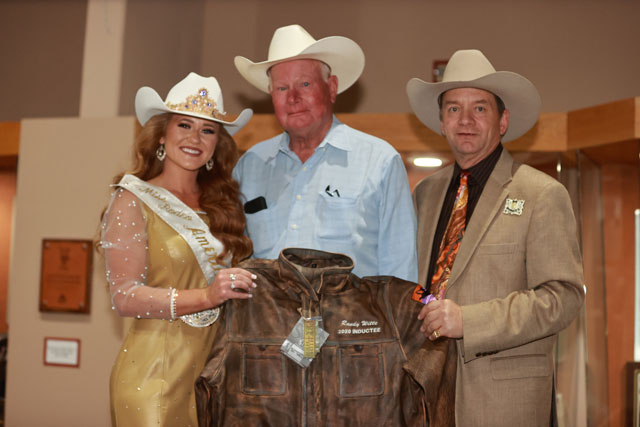
Randy Witte always had an affinity for rodeo but didn’t get a chance to participate in the sport till he went to Colorado State University, where he majored in technical journalism and found the CSU rodeo club. He was befriended by Jerome Robinson, a sophomore who was “majoring” in bull riding, and before long Robinson was tying Witte onto bulls, offering instruction and encouragement.
Witte enjoyed his days of competition in college rodeo, and in the Rodeo Cowboys Association, but he knew early on his future was as a rodeo writer, rather than rider. He sold his first magazine article to Western Horseman in 1968. “Judging Rodeo’s Bucking Events” was based on interviews he did with saddle bronc rider Jim Wise, World Champion Bull Rider Freckles Brown, and World Champion Bareback Rider Jim Houston.
While still in college he worked a couple summers as a cub reporter for the Denver Post, and got the plum assignment to cover Cheyenne Frontier Days for the paper in 1968. Witte was offered the job as director of the R.C.A.’s Rodeo News Bureau when he graduated college in 1970, and for the next seven years he enjoyed publicizing ProRodeo with news releases, press kits and recorded radio programs. There was a need for an editor of Rodeo Sports News in early 1976, and Witte was able to also get out the association’s paper for the next two years.
In late 1977, Western Horseman magazine offered him a job — they needed someone who could write knowledgeably about rodeo. He accepted the offer with one condition — that the PRCA not be left in a bind when he left. This was easily granted, and Witte transitioned gradually from one office to the other. By then, the R.C.A. had become the PRCA and Rodeo Sports News had become ProRodeo Sports News. Witte continued to write about rodeo for the next 29 years. During that time he served as editor, and later, as publisher of the magazine.
Born January 28, 1948 in Denver, Colorado.
From the Induction:
“I have many good memories working in a little red brick building in Denver 50 years ago. I had a job as soon as I graduated from college. Our biggest day of the week was Monday; rodeo secretaries would phone me at home Sunday nightand I would record the results and I’d go to the office and I’d bat out a little news release. When the news release was done, we’d stuff them in envelopes and send them all over the country. I had to get the sacks of mail down to the train station before five. I never missed a deadline. I covered the groundbreaking celebration of the PRCA hall of fame. At the time this was the first building that went up in this area of Colorado Springs.”
BUTCH KIRBY
Bull Rider
Inducted 2020
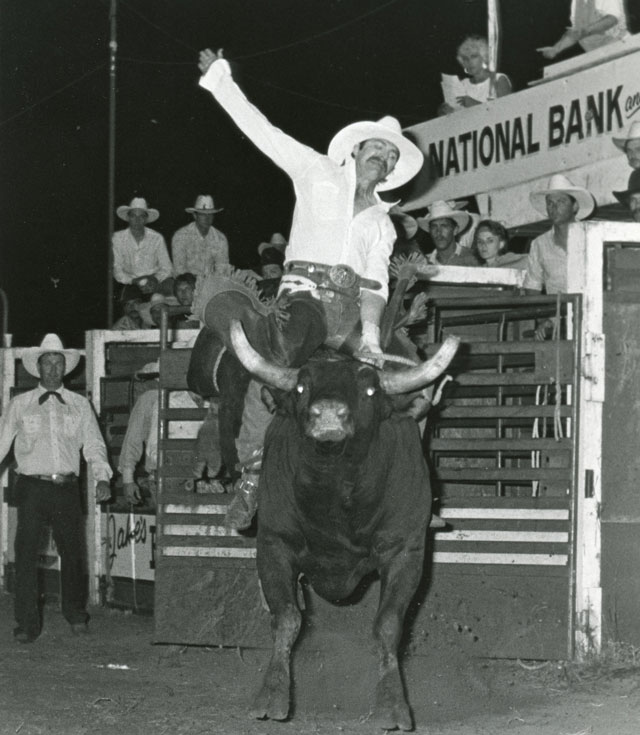
Gary William Kirby, better known as Butch, started his rodeo career at age four when he joined his brothers in a trick riding troupe led by his mother, Mildred. By 16, he had changed his specialty to bull riding. Kirby credits the agility and balance of trick riding as helping with his transition to rodeo’s roughest event.
In 1973, Kirby earned his first trip to the National Finals Rodeo at age 18. (At the time, the youngest qualifier in any roughstock event.) It would take a few more trips to the Finals before Kirby earned his world title. In 1975, Kirby and his brothers, Sandy and Kaye, became the first three brothers to qualify for a National Finals Rodeo in the same year. Kirby finally won his title in 1978 in a battle against reigning champion Don Gay. He won $15,000 at that Finals, placing him in the top spot. (In 1978, World Championships were determined by money won at the National Finals Rodeo.)
Kirby would make three more trips to the National Finals Rodeo before transitioning to his third career in rodeo. Kirby began judging rodeos to earn money while recovering from an injury in 1987. He became a Pro Official in 1993 and has served in that capacity at many of the major rodeos in the country. He has been a National Finals Rodeo Official for 30 years.
Through this long and decorated career, Kirby has participated in every major rodeo as either a contract act, bull rider, or judge.
World Championships: 1 (1978)
Born April 24, 1955 in Woodstown, New Jersey.
From the Induction:
My heroes have always been cowboys, and all my heroes are here in the Hall of Fame. Mom didn’t realize she was training me to be a bull rider. I don’t even know if I was shaving at my first NFR. Neal and Miss Kay helped me get on some practice bulls in Mesquite. Neal nodded for me because he knew I wasn’t going to nod. I got on a lot of practice bulls that day.
Mom gave me $50 to go to San Antonio – ended up third in the world when I left Houston. By May, I dropped to 14th, and realized it was hard. Bobby Steiner got me to the NFR – you’re only as good as the company you keep. Bobby was great to me.
G-65 GRATED COCONUT
Livestock
Inducted 2020
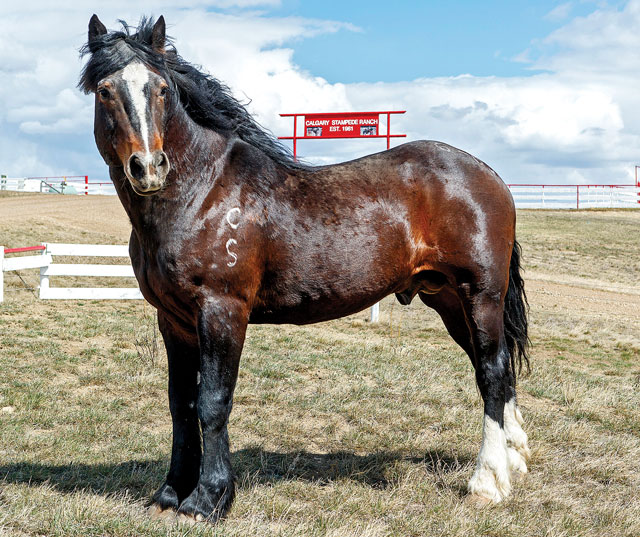
G-65 Grated Coconut is a testament to the Born to Buck Breeding program of the Calgary Stampede Ranch. His mother, Coconut Roll, was a ten-time National Finals Rodeo qualifier. His sire, Wyatt Earp of Northcott Rodeo, was voted Saddle Bronc Horse of the National Finals Rodeo in 1997 and 1998.
Grated Coconut became a dominant force during his career. Of his 114 outings, 37 cowboys hit the dirt, 25 scored in first place, and 29 finished in the money. If a cowboy was lucky enough to stay aboard for eight seconds, he usually won money. His prowess in the arena earned him six Bareback Horse of the Year titles (2003-04 and 2006-09), tying with the great Descent. He also earned six Canadian Champion Bareback Horse titles (2003-05 and 2007-09).
Retired at the top of his game in 2010, Grated Coconut is continuing the Calgary Stampede Ranch Born to Buck program. Of his children, at least 45 are competing at the top level of rodeo athletes with several qualifying for both the National Finals Rodeo and the Canadian Finals Rodeo.
For a horse feared by many cowboys, Grated Coconut was very social and gentle outside the arena. He enjoyed scratches from the cowboys before competition and has even let toddlers sit on his back. Grated Coconut became a top rodeo animal ambassador. Visitors to the Calgary Stampede Ranch were able to socialize with him before watching him explode into a rodeo arena. The pairing of his power and intelligence truly made him one of the great rodeo athletes.
Born 1997 in Hanna, Alberta.
JIM SUTTON, JR.
Stock Contractor
Inducted 2020
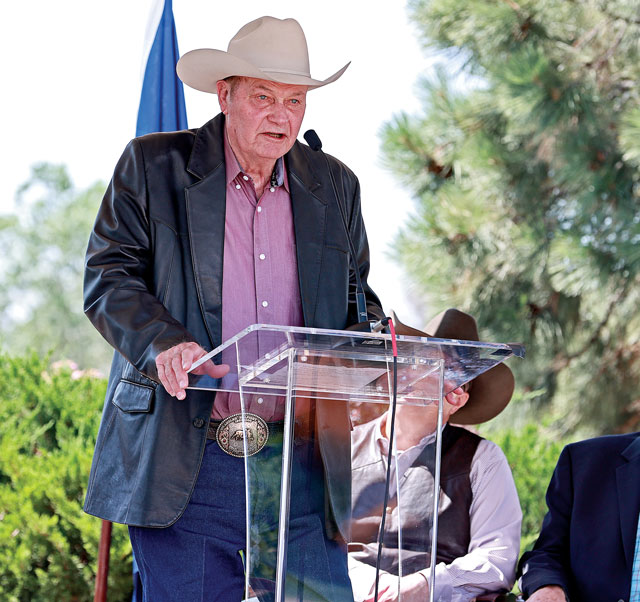
James Sutton, Jr. could have chosen a very different path at the end of his college career. The young South Dakotan was drafted by the Minneapolis Lakers and he attended their preseason training camp. However, he believed following his father and grandfather in the ranching and stock contracting business made more financial sense than a basketball career. In 1968, Sutton joined his father in creating the Sutton Rodeo Company. They supplied stock from their Onida, S.D., ranch to rodeos across South Dakota and the Northwest. By the late 1970s, Sutton was raising more than 90% of his own bucking stock and developed a breeding program that is one of the best in the business. The program has produced three PRCA Horse of the Year winners: saddle bronc horse Deep Water (1979), bareback horse Big Bud (1985), and saddle bronc horse Chuckulator (2012). Chuckulator also won Top Saddle Bronc Horse of the National Finals Rodeo in 2012. Their horses and bulls won all three categories at the Badlands Circuit Finals Livestock of the Year Awards in 2011. The program has also earned Sutton four nominations for PRCA Stock Contractor of the Year.
In 1978, Sutton started the Black Hills Stock Show and Rodeo. It has been nominated as Indoor Rodeo of the Year 15 times and won the award twice, 2002 and 2003. To draw attendance to the rodeo, Sutton created the Wrangler Bull Fights, the Bailey Bail-Off, World Championship Wild Horse Race, Bull Poker, and Teeter-Totter. Sutton’s pageantry and showmanship earned him National Finals Rodeo Opening Ceremony credits in 1995 and 1996.
Sutton and his wife Julie won the PRCA Donita Barnes Lifetime Achievement Award in 2016.
Born April 20, 1935 in Onida, South Dakota.
From the Induction:
“It all started with my granddad with a rodeo on the ranch in 1927. We had 60 palomino horses and ¾ of them bucked the cowboys off. The whole operation is a family operation – there are three grandsons and a granddaughter putting on a rodeo while we are here. Julie couldn’t make the trip and I’d ask for you to say a prayer for her.”
ELLENSBURG RODEO
Rodeo Committee
Inducted 2020
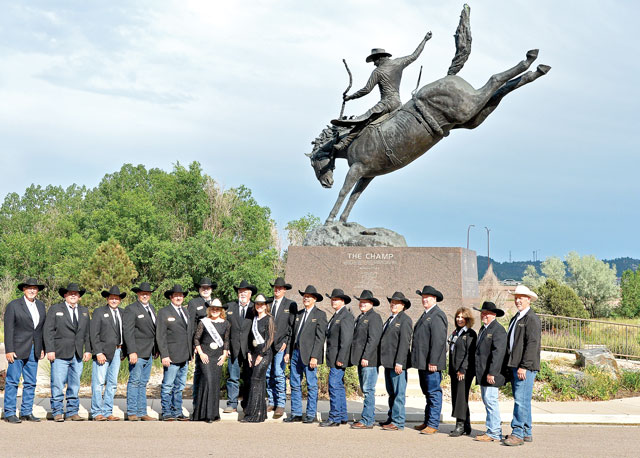
Nestled in the center of Washington State in the Kittitas Valley (land of plenty and no fighting), Ellensburg – called ‘the rodeo city’ – has become one of the top destinations for cowboys and cowgirls near the end of the regular PRCA season. The rodeo started in 1923 when local businessmen, farmers, ranchers, and townsmen began to feel the tug of nostalgia as airplanes, moving pictures, and automobiles started replacing the Western lifestyle. The Valley was settled in the 1870s – the rodeo came out of the local competition. At the time there were 50,000 head of cattle in the county. The rodeo will celebrate 100 years next year – they missed three years, two due to WWII and last year.
Held over Labor Day Weekend each year, the Ellensburg Rodeo is an important stop in the series of Northwest rodeos, hosting around 400 contestants.
The Ellensburg Rodeo is held on the historic rodeo grounds at the base of Craig’s Hill, and the Yakima Indian Nation has always participated. With a fulltime population of 21,000, this “Rodeo City” hosts one of the highest paying regular season rodeos, paying out more than $486,000 two years ago. Since 2009, Ellensburg has served as the finale for the PRCA Xtreme Bulls Tour.
“We started the first PRCA stand alone single event in 2001(Xtreme Bulls),” said Rick Cole, the longest serving board member and arena director. There are 17 people on the committee and three to four hundred volunteers. “This in an honor for the community – without the selfless dedication of all, this event could not occur.”
The committee has had three Justin Committeeman of the Year Awards: Ken MacRae (1998), Joel Smith (2007), Steve Alder (2013). These awards highlight the commitment of the 100% volunteer-run organization. In 1997, the Ellensburg Rodeo Hall of Fame Association was founded to preserve the history and traditions of this nationally renowned rodeo.
“Being named into the pro rodeo Hall of Fame is really humbling and a huge honor. It’s a dream come true. We believe we put on the best rodeo,” said Jerry Doolin, the president of the committee, who has been a volunteer for more than 20 years.
MARTHA JOSEY
WPRA Barrel Racer
Inducted 2020
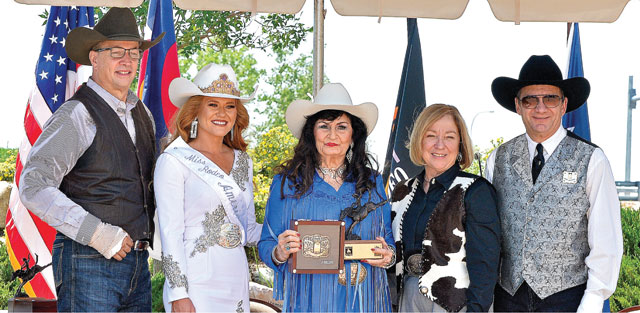
Martha Josey qualified for the National Finals Rodeo 11 times on six different horses across four consecutive decades. She won the WPRA barrel racing world title in 1980 on Sonny Bit O’ Both, the same year the duo also won the AQHA World Championship, a feat unmatched at the time of induction.
A highlight of her career was competing in the rodeo exhibition during the Cultural Olympiad at the 1988 Winter Olympic Games in Calgary, Alberta, that pitted the United States against Canada. Josey would ride away with an individual bronze medal and helped Team USA win the team title.
Josey was a true all-around cowgirl riding bulls, broncs, cutting horses, tying goats and roping calves while competing in all-girl rodeos. In 1969, Josey won the reserve All-Around World Championship Title in the Girls Rodeo Association.
Not only did she make a name for herself in the arena but also gave back to the sport through her countless clinics. She and husband, R.E. Josey, started conducting barrel racing clinics in 1967 at their ranch in Texas and in 1981 began producing an all youth barrel race aptly named the Josey Jr. World Championship. Many of WPRA’s world champions credit Martha Josey with helping them achieve their goals. Her clinics grew to average over 2,000 students annually with students ranging in age from five to 80 and many returned yearly to participate in the annual Josey Reunion Barrel Race.
In addition, Martha and R.E. were involved in creating new and innovative barrel racing saddles, pads, protective boots, knot reins, and combination bits. The result has been increased safety and barrel racing skills for all barrel racers throughout the World. No doubt Josey made a big impact on the sport of barrel racing.
World Championships: 1 (1980)
Born March 11, 1938 in Longview, Texas.
From the Induction: “Rodeo is making America great again – such a great honor.
When I was a little bitty girl, my first word was I want a horse. My dad was one of the first four directors of AQHA, he brought 36 mare to Texas. He passed away when I was 10 and mother had to sell all the horses except one old stallion. I went to a rodeo in Shreveport – saw the American flag come out and I watched the barrel racing and knew then that I belonged in the arena. I wanted to be a barrel racer. I went home and got on my dad’s old roping saddle and that stallion and went to the field to run barrels.
I was trying for my fifth decade of running at the NFR, when the gateman shut the gate in front of me. I had a collapsed lung and other serious injuries and was in the hospital for three weeks – said I would never walk or ride again. That was in March, and I made the short go in Greeley in July.
